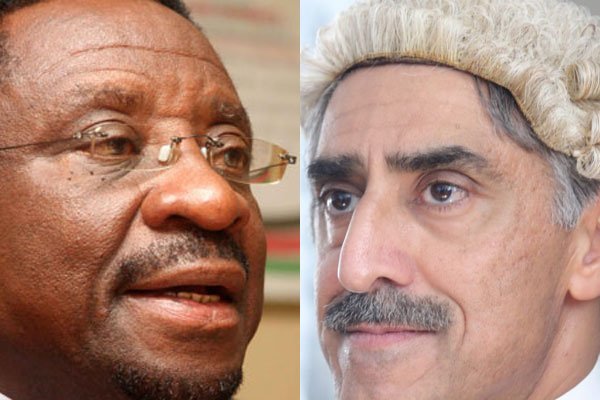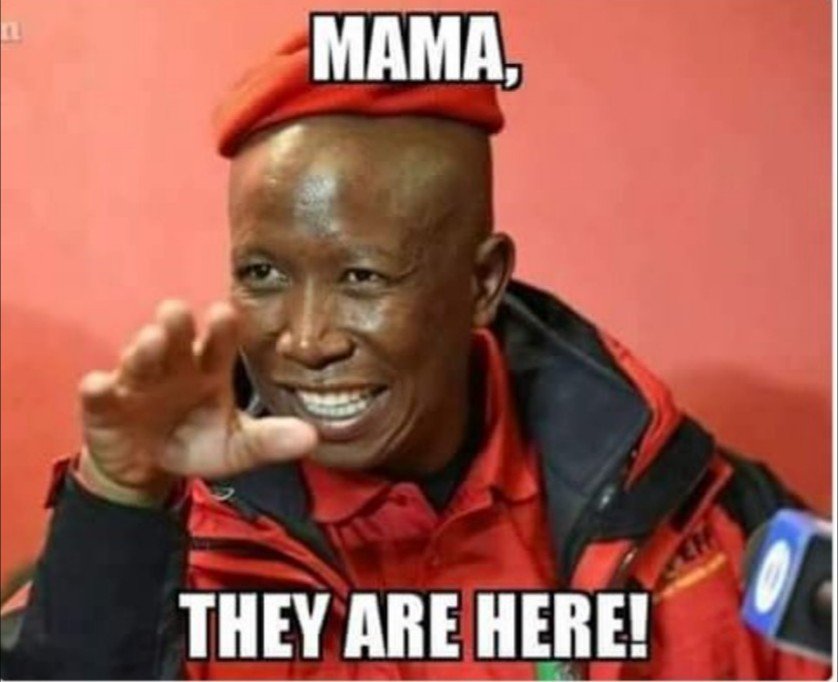
The evergreen James Orengo is a Jacobin, the new face of resistance, master of rhetoric and hominem attacks.
Of all the firebrands of the 1970s and 1980s, only Mr Orengo is still in the political podium.
He still projects great confidence and consistency, and if ODM leader Raila Odinga ever exits the political stage, the man to watch will be Jimmy, as he is fondly known in the inner circles.
Perhaps because of his near-fall from national politics in 2002, when he vied for presidency and received a paltry 24,000 votes, Mr Orengo now skillfully utilises ad populum arguments which appeal to his listeners and loves to wave the index finger as he speaks to the public.

Of late he has adopted the clenched fist as a new gesture ,taking hue from other resistance movements that have used the symbol throughout history to denote militance and rebellion.
On Thursday, during the hearing of Deputy Chief Justice Philomena Mwilu’s petition against DPP Noordin Haji in a graft case involving her, Orengo opposed the foreign state prosecutor, the Queen’s Counsel Khawar Qureshi from representing Haji in DCJ Mwilu case, saying the Queen’s Counsel lacks certificate of admission. Well, but where did all this start? It is a Thursday, and here we throw back some of Orengo’s moments.

At only 29, Mr Orengo fought stiff opposition with support of Jaramogi.
Mr Orengo’s entry into Parliament coincided with the days of the Moi terror and he had to get into trouble soon.
At one point, as Mr Orengo was about to move a motion to have workers get a five per cent bonus of the profits made by a company, the powerful Charles Njonjo entered into the chambers, Mr Orengo remarked: “The honourable Member for Kikuyu has just come in and I almost thought I was seeing the Queen’s butler walking into the House.”
Then an infuriated Njonjo pointed at Mr Orengo: “What did he say?”
Mr Orengo ignored him and continued with his motion and after a few minutes, he again, out of the blues , remarked that Mr Njonjo “dresses like the Queen’s Butler.”

Mr Njonjo stood up: “Mr Speaker this is the second time we are hearing that stupid word and this honourable member is using. If (Mr Orengo) has nothing to say, he should leave me out of the discussion.”
But it seemed that Mr Orengo had a bone to pick with Mr Njonjo after he was forced to withdraw the reference: “Last week, some members here were called “bearded sisters” which is clearly offensive, very provocative and we did not rise up to say that that was very offensive.
I am trying to show the honourable member that I like the way he has dressed. Today, I have copied him.

I am looking like the Queen’s Butler so that if I went to look for a job in Buckingham Palace, I would get it.”
That was classic Mr Orengo in April 1982 – and the payback was to come soon.
A few weeks later Mr Orengo was arrested and charged with forgery, uttering false cheques and stealing client’s money. Also his passport was seized by immigration officials together with that of Wundanyi MP Mwashengu wa Mwachofi, the MP for Kitutu East Abuya Abuya and the MP for Kilifi South Chibule wa Tsuma.
Mr Orengo was taken to then Nairobi Magistrate Abdul Rauf and was released on bond after two Nairobi lawyers Kasanga Mulwa (later Makueni MP) and a Mr Kibet Saina Tengekyon stood surety for him for Sh50,000 each promising that Mr Orengo would attend court.

He didn’t. Instead, Mr Orengo fled to exile and abandoned his parliamentary seat.
Mr Orengo had followed into Tanzania Mrs Chelagat Mutai, another firebrand who had abandoned her seat in October 1981 after she was accused of making false mileage claims totaling Sh69,000, which was common then (and even today!)
By then Tanzania had closed its border with Kenya and was the bastion of revolutionary movements in the region.
Among the groups based there was Nelson Mandela’s African National Congress, Guyana’s Walter Rodney who was teaching history at the University of Dar es Salaam and was also the military training base for Sam Nujoma’s South West Africa People’s Organisation, the guerilla movement that fought for Namibia’s independence from South Africa. Besides, these groups, the University of Dar es Salaam was also the base of revolutionaries, thinkers and Marxists and was the safe haven for tens of left-wing student leaders who found solace in Julius Nyerere’s Tanzania.

The disappearance of Mr Orengo into exile coincided with the time that Uganda’s Yoweri Museveni was staging armed struggle inside Luwero Triangle – thanks to the support he had received from Libya.
Whether this shocked the Moi regime is not clear but that his passport had already been seized during that period is today an indicator that the system wanted to contain him in Kenya.
Nothing was heard of Orengo until it emerged later that he was in Tanzania going by pseudo name Aggrey Oduori Kenga.
There were reports then that he had also gone to Zimbabwe or had travelled to Libya.

In a 2011 interview transcript held at the Library of Congress, Mr Orengo reveals his movement: “I went to Uganda and was out there for a month. Then I went to Tanzania and stayed some time. I went to Zimbabwe. When I came back to Tanzania, I wanted to do a post-graduate in the University of Dar es Salaam. And there had been a coup attempt in Tanzania. … but because the coup plotters in Tanzania ran to Kenya, Kenya now found a basis for trying to talk with the Tanzanian government to exchange the exiles. And that’s what happened to me: we were exchanged and I was brought [to Nairobi] where I was detained for six months in 1983.
Shortly after the abortive 1982 coup in Kenya, the ring leaders, Senior Private Hezekiah Ochuka and Pancreas Okumu had fled to Tanzania and Nyerere refused to hand them over to Kenya.

It was not until some renegade soldiers attempted to overthrow Nyerere in January 1983 and later fled to Kenya that he agreed to exchange the coup leaders and those exiled in Tanzania.
Mr Orengo was one of them.
It was Mr Orengo who took the government to court in 1990 when then Registrar of Societies Joseph King’arui turned down an application by king of 0pposition politics Jaramogi Oginga to register the National Democratic Party.
Unknown to many, it was also Mr Orengo who conceptualised the Forum for the Restoration of Democracy (Ford).